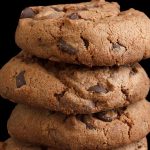
Extremely tiny bits of plastic: They’re in your food and drink, and even in the air around you. Now, new research calculates that the average American consumes more than 70,000 particles of these “microplastics” every year — and even that’s likely an underestimation, the scientists noted. Your microplastic intake might be even higher if you choose products that have more plastics involved in their processing or packaging — including bottled water, the research team said. Just how harmful is all this plastic in your body? That’s still unclear, said one expert unconnected to the new study. “It’s certainly concerning,” said Dr. Kenneth Spaeth, chief of occupational and environmental medicine at Northwell Health in Great Neck, N.Y. “I think the best we can say is perhaps there’s minimal harm here, but I think there is a possibility the harm could be extensive.” Other recent studies have shed light on the ubiquity of microplastics in people’s bodies. For example, one report out of Austria found that the average human stool sample contained at least 20 bits of microplastic. In another study, microplastic was found in 90% of samples of common table salt. However, it’s tough to accurately calculate the amount of plastic people consume, noted the lead author of the new study, Kieran Cox. That’s because the 26 studies used in the evidence review involved food sources… read on >
















